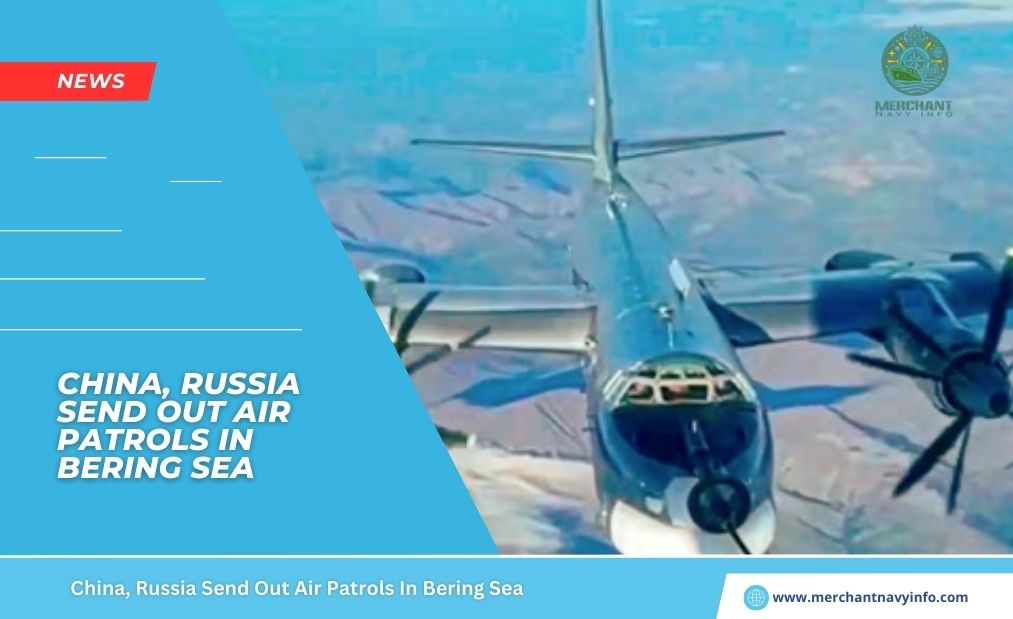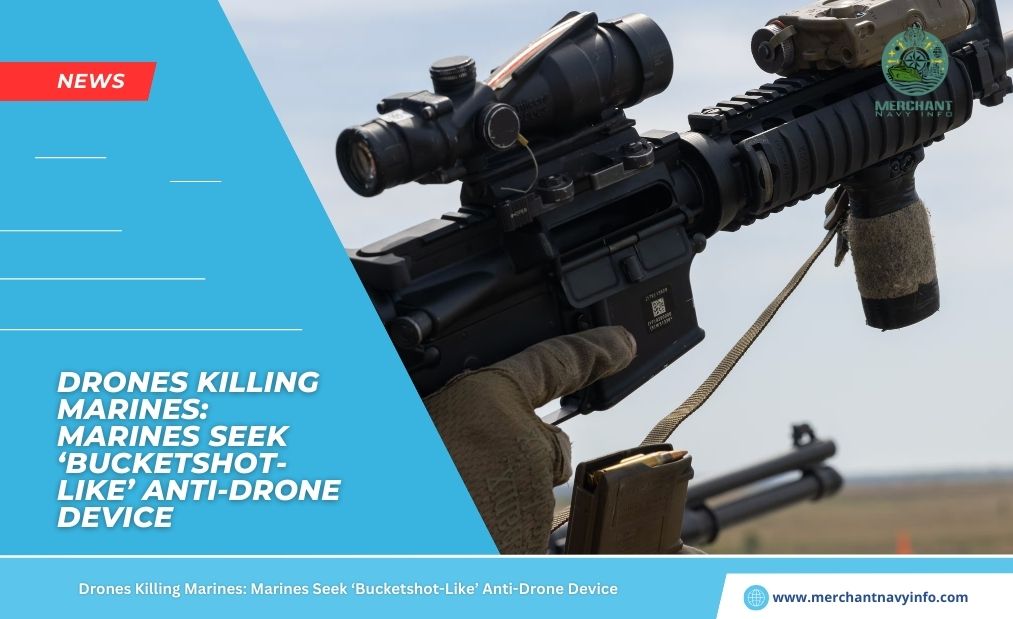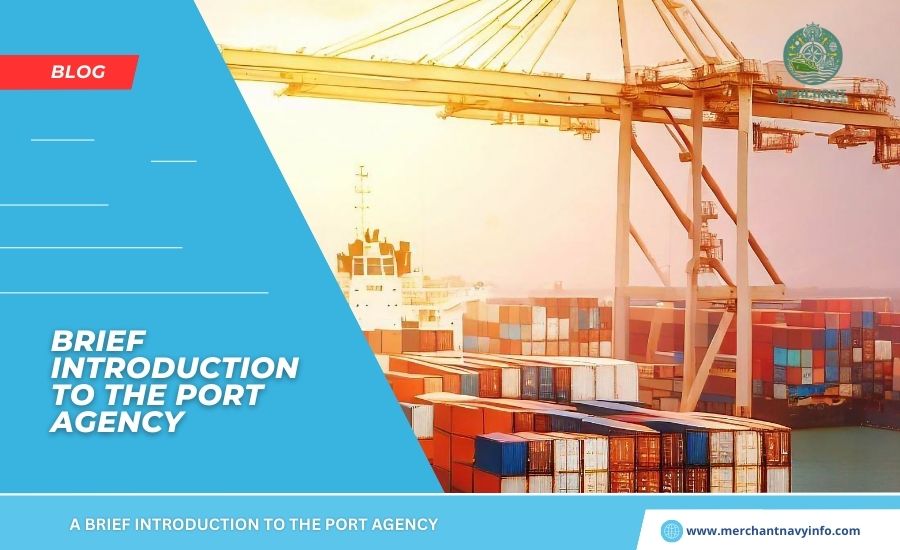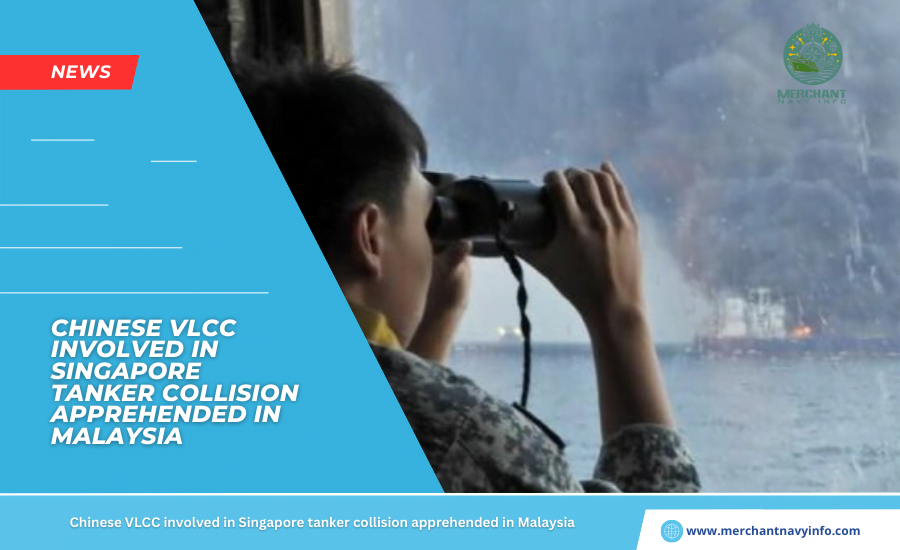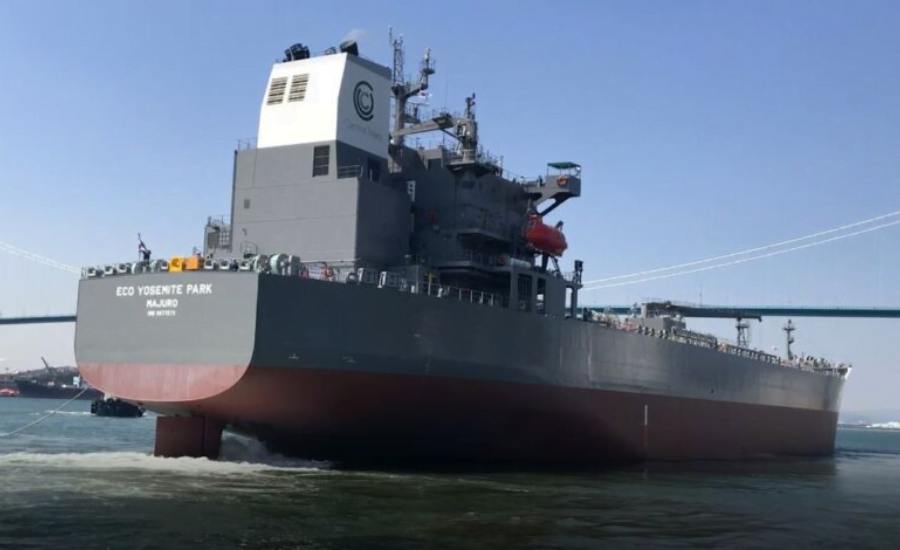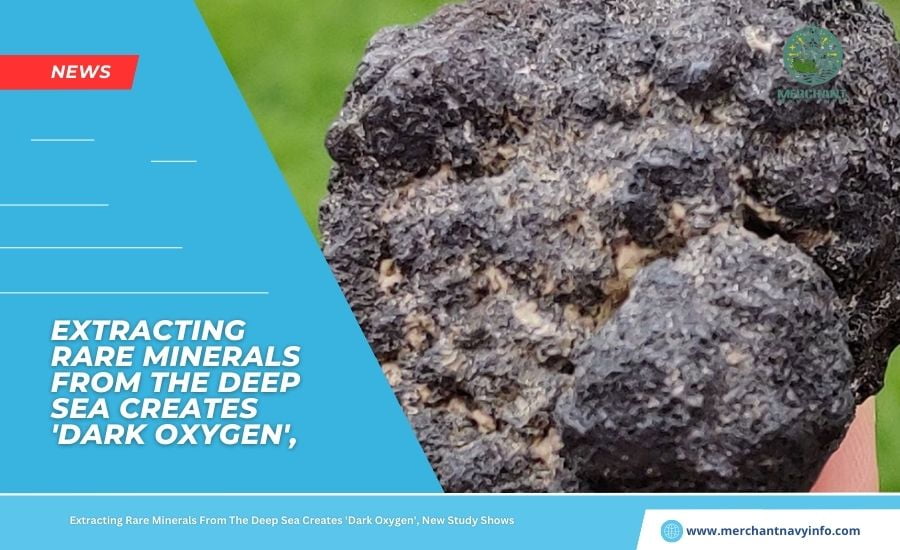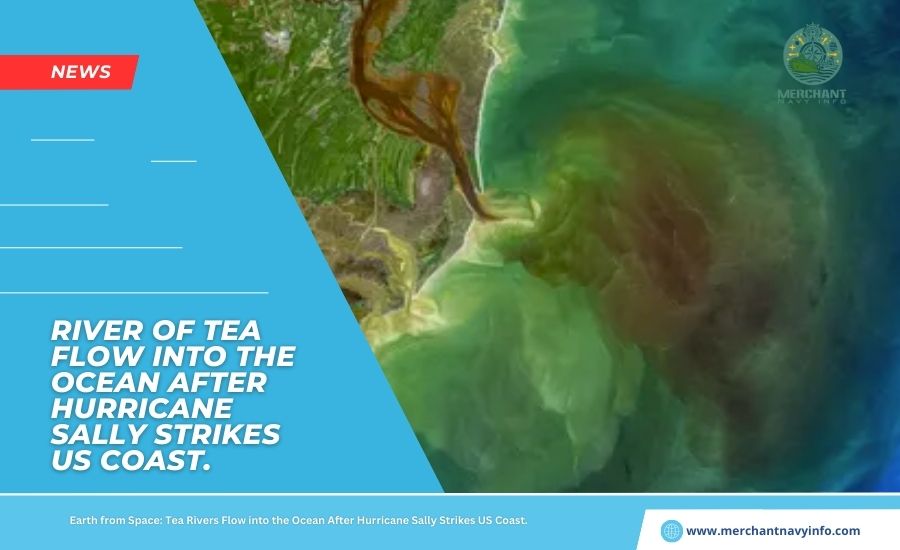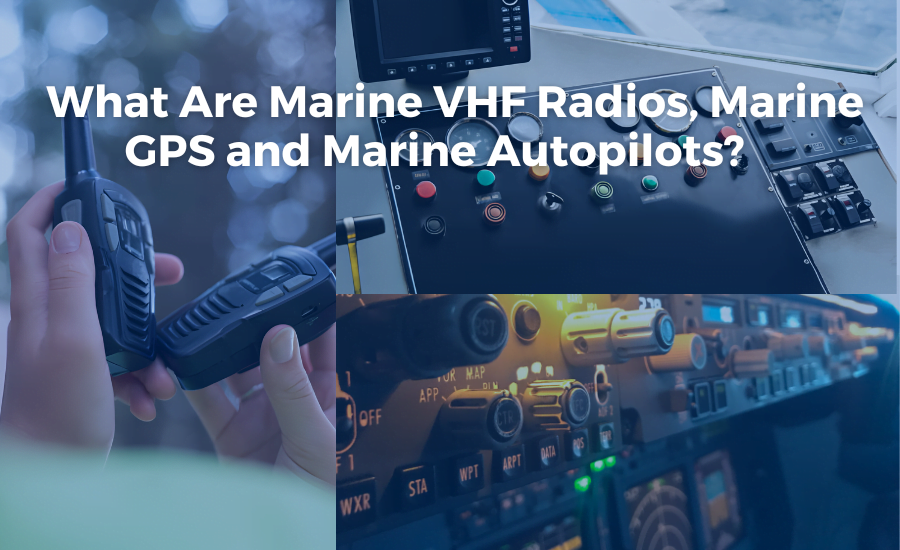
Consumer marine products require the use of a variety of associated equipment necessary for maritime travel, and without this equipment, maritime adventures and travel can become dangerous. Consumers Marine, as its name suggests, is aimed at consumers of maritime travel, providing them with the support of Marine GPS systems and technical assistance they need to maintain their intended route and position underwater.
VHF Marine Radio
VHF stands for `Very High Frequency” and is an important part of marine radio services used by mariners to send distress messages. A marine VHF radio is a two-way communication device that sends and receives messages to and from answering stations. It is equipped with an FM antenna that transmits high frequencies in the MHz range. VHF radios can reach a range of up to 30 nautical miles if the antenna is high enough. However, the most important function of VHF marine radios is to help transmit distress signals across the Channel to the Coast Guard and other ships in the vicinity. In addition, certain VHF ship radios allow you to make calls through the ship operator for a certain amount of money and also function as telephone communicators.
VHF Marine Radio
Another important aspect of VHF marine radio is that it is divided into two main categories:
Portable and Non-Portable.
Some also have built-in GPS and AIS receivers. The portable FM radio has a waterproof cover and is battery-operated for easy power transmission. Even if it falls into water, it will float and function. Stationary or non-portable VHF marine radios cover large airspaces. Their power transmission and energy sources are vast compared to their portable counterparts and are much more practical in terms of operational equipment. The Fixed Radio also offers Digital Selective Calling (DSC) functionality that transmits your location to the nearest Coast Guard station with the push of a button. However, for this feature to work, the radio must have a built-in GPS receiver or be connected to another GPS on the boat.
To get the most out of your DSC radio, you must have a Maritime Mobile ID or MSI number to help you connect to other vessels in the area. According to the United States Coast Guard, all boaters and sailors are required to have their VHF radio on board their vessel. Most radio stations offer complete international broadcasts using her three maps of the United States, Canada, and the High Seas.
How to Use a VHF Radio
Always perform a radio check to ensure proper operation. However, channel 16 should not be used for this. The radio’s power setting should be set to 1 watt, and the microphone should be keyed. Please call “Radio Check” three times with the ship name and location. Then you can wait for the answer. Depending on the type of emergency and the type of assistance required, calling channels may be used.
Vessels wishing to call boaters can call them using Channel 9, and anyone, including boaters, can use Channel 16 to call commercial ships or shorelines. This regulation prevents overloading of the Channel 16, emergency, security, and calling frequencies. In addition, boaters must monitor channels 9 or 16 and not communicate with the stations when the radio is on. If you wish to use your VHF radio in an emergency, please set it to channel 16 and full power. If your life is at risk, you can send a distress signal by saying “Mayday Mayday Mayday,” which is the ship’s name and call sign.
Coast Guard Responds
When the Coast Guard responds, they will respond with the vessel’s location, ideally her latitude and longitude, from the GPS. Rescue boats can easily find you if your emergency call contains complete information. If your life is not in danger but the situation is dire, please say “pan-pan”. It can also provide additional information such as the vessel’s movement, speed, destination, number of people requiring medical care or towing, and the color of the hull and cabin. If there is no response from the other party, repeat this at regular intervals. Under the Telecommunications Act of 1996, a recreational boater may use his VHF radio, EPIRB, and marine radar without an FCC marine station license.

Marine GPS Systems
Marine GPS systems have become essential devices for vessel navigation. Similar to similar systems in cars, marine GPS systems help keep ships and boats on course, especially in areas with marine life.
The Importance of Marine GPS Systems
Everyone should have their own GPS, even if they are sailing a small boat close to the coast. Conditions at sea are constantly changing, and mechanical breakdowns and adverse weather conditions can occur. Additionally, modern GPS is not very expensive. Most people may be wondering:
Why Buy GPS When Your Phone Already Has It?
However, mobile phones have many drawbacks. They are not attached to your ship. It can be broken or damaged by strong waves, it is not waterproof, and the battery will drain quickly. Therefore, GPS is an essential life-saving device at sea. Amateurs, recreational boaters, and anglers should also carry a GPS. Various Uses of GPS have many uses other than displaying real-time location.
For boaters, it can be used to set an anchor alarm. You can set up a geofence around your moored boat. If you miss and destroy the geofence, an alarm will be activated. Therefore, it acts as a security system, and even if someone tries to steal it when you are not around, you will receive a text message on your phone. It can also provide other functions when connected to other electronic devices. For example, the autopilot can control the course and provide additional data to the digital map. Ship position information can be transmitted to VHF radio.
In addition, marine GPS systems allow mariners to accurately determine the location of other vessels to avoid underwater collisions and thereby avoid damage to people or cargo on board. It is important to highlight that marine GPS systems are protective and waterproof and feature buttons and dials that can be operated with gloves, providing ease of use for all marine travellers.
GPS Accuracy
It depends on many factors, including atmospheric conditions and receiver quality. When GPS is working, it continuously updates your location while providing speed and direction information. Sailors and boaters can also permanently save locations, commonly known as waypoints, to mark fishing hotspots, reefs, and more. You can also create waypoint routes to get from A to Z. Earlier GPS devices displayed your location based on time, but modern GPS devices display your location based on latitude and longitude, similar to how you see your location on a road map on your phone. Such GPS devices, also called chart plotters, have comprehensive and detailed maps that are highly accurate.

Marine Autopilots
Marine Autopilots is Consumers Marine’s third and final support system. Previously, ships had to be physically piloted by a captain, which did not leave room for the captain to interact with the rest of the ship’s crew. However, in modern times, the advent of marine autopilots has solved the problem of physical manoeuvrability of ships and boats, giving captains more flexibility in steering. Marine autopilots are available in a variety of configurations. The models are categorized from complex to simple, supporting not only veterans but also beginners. Marine autopilots rely on marine GPS systems, increasing the interdependence of these two types of devices.
Consumers Marine’s recent expectations
It reflects the developments that have taken place in the marine tourism sector. Over time, the demand for consumer marine products and equipment has also changed. Today, equipment such as VHF marine radios, marine GPS systems, and marine autopilots have become basic requirements for ocean navigation. Because without them, symbolically and figuratively, we would be lost in the vast labyrinth of water that surrounds the earth.
Frequently Asked Questions
1. What Is The Range Of Vhf Marine Radio?
Used to contact emergency services, piers, ports, marinas, nearby vessels, etc. It operates in the high-frequency range of 156 to 162.025 MHz and has a connection range of 25 to 30 miles.
2. Which Fm Channels Should Not Be Used As Working Channels?
Channel 16 should not be used as it is the primary Channel that serves as the national emergency, safety and calling frequency.
3. What is the importance of GPS in the maritime industry?
The GPS has changed the way the world works, especially by making maritime search and rescue relatively easy and fast. GPS provides the fastest and most accurate way for mariners to measure and navigate speed and position.
4. Can I Use GPS with A Transducer?
Yes, you can still use GPS. However, the transducer/sonar or depth finder will not work. Therefore, we need transducers to perform important functions.
5. Do All Yachts Have Marine Autopilots?
New yachts usually come with autopilots pre-installed. However, it can also be installed on older boats. Other boats use different autopilot systems. It is useful for long voyages and saves a lot of energy.


